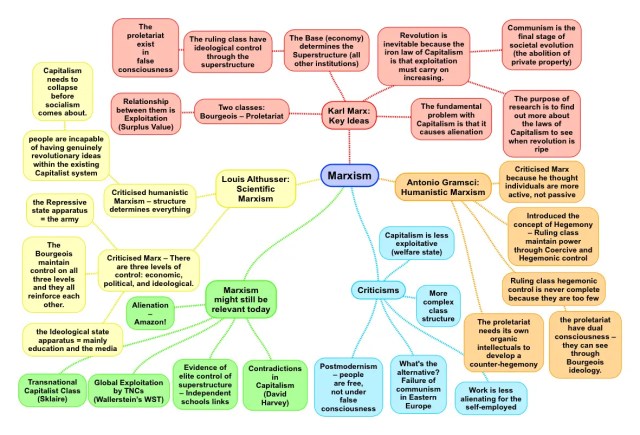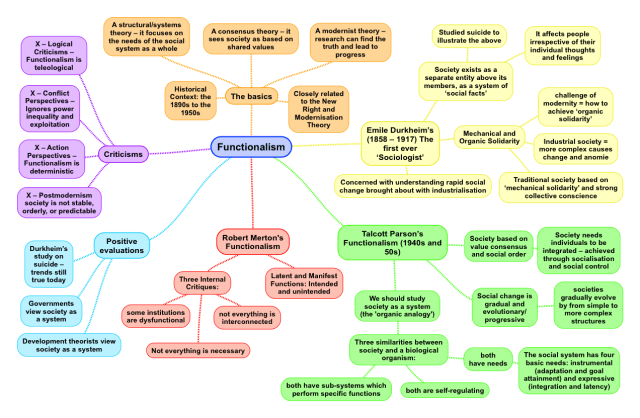Last Updated on August 24, 2021 by Karl Thompson
This post attempts to demonstrate what sociology is by examining how the discipline approaches one particular issue – why some children do worse at school than others…from a sociological perspective, educational failure is not simply down to the individual!
The easiest way to illustrate the sociological imagination, and to demonstrate how sociologists ‘do sociology’ is to look at an example of how Sociology approaches a particular social issue – such as the the issue of educational underachievement. Most Sociologists regard this as a social problem because leaving school with few or no formal qualifications is strongly related to a future of unemployment and/ or low-skilled and low-paid work.
This post has primarily been written for students studying A-level sociology, to read as part of a two week introduction to sociology.
Why do some children fail where others succeed?
The most obvious place to look for this answer is the the children themselves – either their educational failure is a matter of low intelligence or lack of aspiration and individual effort, in which case either there’s not a lot else that anyone could do (in the case of low intelligence), or it’s down to the individual student to pull their socks up (in the case of low aspiration or effort).
A second common place to look is the individual school which could be ‘letting the students down’ – either the teachers are not committed enough, or the school is badly managed, in which case new teachers or management are required.
While Sociologists do not dismiss either of the above explanations as factors related to educational underachievement, they argue that they do not look deeply enough at the underlying causes of this problem, and if you dig deeper (using statistical methods, and more of that later), you will see that there are more significant factors related to differential educational underachievement – such as the level of income of parents, the values of parents.
Poverty and Educational Underachievement
There is in fact a very strong relationship between the amount of income and wealth parents have and how well their children do in school. To put it bluntly, the poorer someone’s parents are, the more likely their children are to get poor GCSEs.
This is because poverty acts as a limiting factor on educational achievement. Poverty leads to material deprivation which in turn is related to such things as poor diets, which means higher levels of illness, and fewer bedrooms in the household which means there is less likely to be a private study-space, and later on, being from a poor background means teenagers are more likely to take up part-time jobs while studying A levels or degrees, which means less study time.
At the other end of the scale, a higher income can mean private tuition or even private schools. Think about it – parents wouldn’t pay £10 000 a year if private schools didn’t work!
What all the above means, is that OBJECTIVELY, all other things being equal, if you take two students, one rich kid and one poor kid, and the poor kid is ill more often, can’t concentrate on homework because he has to share a room with his younger brother, and does 15 hours work a week while doing A levels, while the rich kid has none of the above barriers and has a couple of hours private tuition a week, it is hardly surprising that the rich one is going to get better results.
Parental Values and Educational Underachievement
A second factor which influences how well a child does at school is the values of the parents – it is parents, after all, who teach their children about the value of education, or not; about the importance of sacrificing pleasure now in order to study, or not; and who inspire them to go to university (which requires decent A levels), or not!
It is similarly parents who read to their children when they are young, or not; help children with homework, or not; and police children through their 11 years of formal schooling, or let them run wild on the streets – don’t forget that once you factor in holidays, weekends, and weekday morning and evenings children actually spend far more time outside of school than in it, which suggests parenting (or lack of it) is going to have far more of an impact on how well a child does than schooling.
Numerous studies have shown the importance of Primary Socialisation (the teaching of norms and values in the family) in explaining differential educational achievement – and there are significant differences in the how rich and poor, and male and female children are socialised.
Working class children are more likely to suffer from what sociologists call ‘cultural deprivation‘ – they are more likely to grow up thinking that ‘university is not for the likes of them’ because their parents never went and thus don’t talk about it, which helps to explain why fewer working class teenagers opt to go to university, even when they get good A levels.
While girls are read to more often than boys, which might explain the 10% gender-gap in English GCSE results. Ethnicity also matters. You’ve probably heard of the stereo-type of the fearsome Chinese ‘tiger parents’ who demand their children make enormous effort in school – well, research backs this up – Chinese parents are the most demanding parents, and it works, British-Chinese children outperform every other ethnic group in GCSEs.
All of the above illustrate the importance of not relying on individual level explanations for social phenomena – how well an individual does in school is not just down to their individual talents, it is partly a result of their socialisation, of their background, and social class, gender and ethnicity all have their independent, and combined influences on how well a child does in school.
Still the above isn’t enough to explain differential educational achievement – you also need to look at issues of POWER within the education system.
Power within the Education System
It shouldn’t surprise you that the education system is shaped and run by educated people, typically from wealthy backgrounds, and it is these people and their children who have benefited from various changes in policy over the past century: our education system has changed considerably since WW2, but the middle classes have always come out on top – so it seems that education is primarily about ‘the reproduction of class inequality’ – a mechanism whereby middle class children can do well and go on to get well-paid middle class jobs, while working class children are defined as failures and go on to get low-skilled, lower paid jobs.
The most obvious example of this lies in the existence of private schools, some of which cost up to £30K a year – only 7% of children go to private schools, but over 50% of all the high-paying professional jobs are taken up by these 7% – jobs such Doctors, lawyers, journalists and so on.
The above point of view is mainly associated with the Marxist Perspective on Education.
Conclusions… why do some children underachieve in education?
So to summarise the lessons from the above example – Sociologists do not accept that an individual fails (or succeeds) at school simply because of their individual talents, they succeed or fail at least partly because of their background – the amount of money their parents have, and the values their parents instil in them, which together influence how well the child can do in school, and looked at even more deeply, it seems that the education system is set up to empower the middle classes over the generations, because no educational policies have been put in place which have really broken down inequalities over the decades.
Lessons to learn from the above, and what Sociology does next…
Firstly you are better equipped to find out more about why some kids fail and other succeed – There are of course those from deprived backgrounds who do succeed, and Sociologists recognise that people are not determined by their backgrounds, rather they are steered down certain paths by them, and the question of how such children do succeed is of interest to sociologists as is the question of what we should do about the above unjust situation.
Secondly – learning the above should be empowering – because you now know that the system is not fair – don’t necessarily assume that just because someone has failed at school they are stupid or lazy, and vice-versa about someone who has done well.
Thirdly – there is the question of what we do with the above knowledge – eventually you’ll need to decide whether you work within the system to make it fairer, or whether we need complete systemic change, or whether there’s nothing we can do, and so go and do something else instead!
Signposting/ Find out More
This post has primarily been written for students studying A-level sociology, to read as part of a two week introduction to sociology.
This particular topic is taught as part of the Sociology of Education module.
Please click here to return to the homepage – ReviseSociology.com




